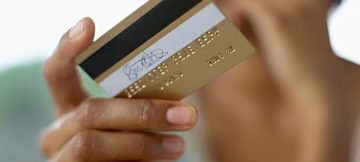
Fraud – What do you do when it strikes your business?
Fraud is a fact of life and if you are in business it’s only a matter of time until you are forced to deal with it. Andrew Firth, a forensic accountant in Sydney explains what to do.
If you are dealing with employee fraud then the first step is to identify what electronic devices could contain potential evidence. The employees’ computer, laptop, phone, PDA, or Blackberry may contain information that is useful to the subsequent investigation. If the computer is turned on, most people will be tempted to go through the computer looking for information.
The first thing to do is to instruct relevant people not to touch the computer and to consult a forensic accountant or forensic technology professional. If you need to shut the computer down, then close any documents whilst taking notes of what you are doing. You will need to secure the computer to prevent unauthorised access. Take the computer and lock it in a secure cabinet or office until it can be passed to a forensic professional. Always take notes of what you have done including dates and times. Also remember to secure any other corporate devices of the individual concerned e.g. PDA and Phones. Remember not to use the devices simply turn them off until professional advice can be sought.
How do you handle documents that may be relevant to the fraud investigation? The first rule is not to write, mark or otherwise handle the document. Secure the documents in a safe place until a forensic accountant can be consulted. Also take notes of what you do as these will be important in establishing the chain of evidence in potential court proceedings.
In many corporate environments there will be pressure from management to use the computer or device particularly if its needed for customer or client operational needs. If this is the case, then the computer and other devices need to be forensically imaged by a forensic technology professional and the image of the device can be provided to management. The original device is secured and should not be used until all court proceedings have been exhausted. Your forensic accountant can organise for a forensic technology professional to be engaged to perform these tasks.
Forensic accountants also find that email systems are a critical source of information when investigating employee frauds. The suspects email inbox and other folders need to be forensically captured. Email on company back up tapes can also be used to identify correspondence and documents at different points in time. A Forensic accountant or forensic technology professional will be able to advise you on capturing the emails successfully.
The next common occurrence in organisations is that people think it’s a good idea to confront the suspect and to “interrogate’ them. Interviews with the suspect should not occur unless advised by legal counsel who is familiar with employee fraud. It’s critical that contact with the suspect is minimised until you know what you are dealing with. Again bringing in a forensic accountant to essentially project manage the investigation will ensure that potential evidence is protected and legal and other advice is obtained when appropriate.
Many organisations are reluctant to bring in forensic accountants as they are concerned that the matter may be adversely reported in the media. In our experience we find that the use of a forensic accountant can minimise the risks involved and can provide crucial advice to the organisation. In many instances, a forensic accountant can recover funds that have been defrauded and liaise with legal counsel, the police or other law enforcement bodies if needed. Above all we find that the use of an expert forensic accountant can quickly minimise the impact of a fraud, recover the funds and really manage the issue until resolution. Fraud investigation has many commercial, legal and regulatory issues and the timing and sequence of activities can have an important effect on the outcome of the matter. Many large corporations also draft a formal corporate policy which documents how an investigation needs to be conducted. These are useful documents as they clearly delineate the responsibilities of Human Resources, Internal Audit, Legal, and the Finance departments.
About the Author
Andrew Firth is a Forensic Accountant in Sydney and Director of Rushmore Forensic. He has over 12 years experience in financial investigations, corporate intelligence and other aspects of forensic accounting. Andrew is a former investigator with the Serious Fraud Office in the UK. He has also worked for KPMG and Deloitte during his career. Andrew is based in Sydney and provides forensic accounting services throughout Australia, New Zealand and South East Asia. If you have a matter which requires expert advice, please don’t hesitate to contact Andrew Firth for a complimentary and confidential discussion.


Rushmore (Author)
View Post